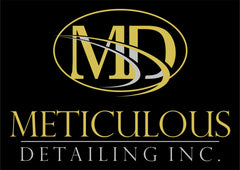Paint Protection Film (PPF)
Paint Protection Film
What you should know about Paint Protection Film and How to choose it
Paint protection film enhances the protection of your car against accidental scratches and rock chips. Its main function is to preserve the car's appearance over a long period of time.
In our Meticulous Detailing Detailing Centre we can wrap the entire car or panel by panel!
If you ask vehicle owners if they use this type of film for protection of their cars, most will answer positively. Every day, the car body is exposed to mechanical impact - small stones and dirt fly out from under wheels of other cars at high speed. They scratch the frame unnoticeably. This type of protection may also protect your automotive from a minor accidental impact, such as a collision with a supermarket trolley.
Paint protection film is becoming increasingly popular among many vehicle owners. Let's take a look at the advantages and disadvantages of this protection option.
Advantages and disadvantages of Paint Protection Film technology
The main function of the film is to protect paintwork from scratches, chips, and other mechanical effects. Currently, there are two main options on the market - vinyl and polyurethane. Vinyl film for new car paint protection started being sold earlier and is therefore more popular. Externally, it looks like plastic and is heated in order to be applied to the surface. The Paint Protection Film aka Clear bra film, has different installation methods and is much more durable compared to vinyl film.
A PPF film for paint protection was made in America and used for army vehicles. Installation of the film on a single part with a polyurethane wrap reduces the amount of wear on the surface. In the USA, it was used for helicopter blades that are rapidly becoming unserviceable because of a large amount of sand. As for vinyl vehicle film for paint protection, it was originally used for advertising structures to keep their presentable appearance in all Canada weather.
What is the difference between vinyl and polyurethane paint protection film? Vinyl protects paint due to its thickness, while polyurethane has special properties. Especially in winter, vinyl loses its strength in extreme cold, while polyurethane easily "survives" sub-zero temperatures. In winter, vinyl can be very easy to tear, and needs to be handled carefully if two parts or the whole surface have been wrapped with clear bra film for paint protection.
There is no definite answer on the question, which to choose, vinyl or polyurethane? It all comes down to how much you're willing to spend. Vinyl is most often used for wrapping the entire body of the car and colour change. However, in Canada it fades quickly and loses strength quickly when exposed to chemicals. A PPF film for paint protection is more durable and long-lasting but costs more.
Standard** from ** $1,297
We install: Paint Protection Film SunTek Ultra and Xpel Ultimate Plus |
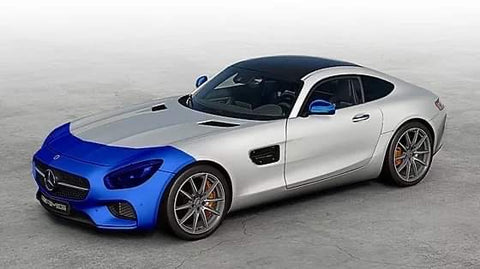 |
Deluxe** from ** $2,097
We install: Paint Protection Film SunTek Ultra and Xpel Ultimate Plus |
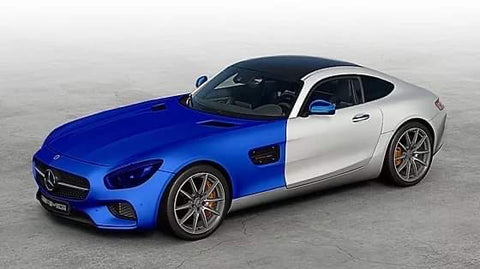 |
Premium** from ** $2,797
We install: Paint Protection Film SunTek Ultra and Xpel Ultimate Plus |
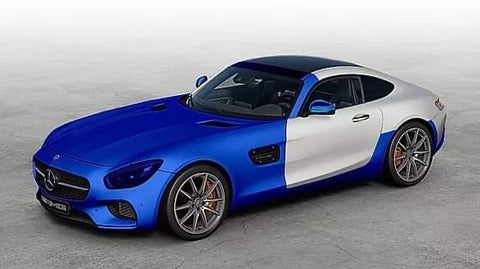 |
Full Body Wrap** from ** $5,997
We install: Paint Protection Film SunTek Ultra and Xpel Ultimate Plus |
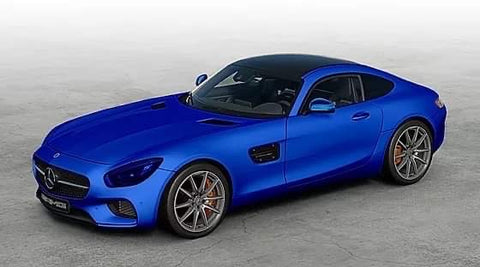 |
Variety and Selection of Automotive Protective Films
The procedure for wrapping three parts with a decorative or paint protection film. Since we are talking about preserving the appearance of the car, we will only talk about the second option. However, there are films, which not only create a protective layer but also look good.
Let's start with an anti-gravel automotive paint protection film - it's a great option for protecting the paintwork. It protects glass from scratches, chips, and dents when on a road. Characterised by great density, and material itself is quite difficult to tear. If you want to get protection that is impervious to temperature changes and dirt of all kinds, this is the right option. A distinctive feature of this type of film is increased resistance to impact. In case of a hard blow, the window would not shatter, thus protecting the driver from injuries. An intruder will not be able to penetrate the interior so easily, as glass does not break immediately.
The following section deals with self-healing paint protection film, which is also divided into protective and decorative films. It is most often made of vinyl. You can order such a service as a full protective film (Budget). The level of protection is lower than that of polyurethane 3m clear film for paint protection, and it is used more for decoration than protection against sand or gravel. Vinyl is easily stretchable and is therefore often used on uneven surfaces. It's best to do the laminating procedure in a warm room and with specialized installers, as sub-zero temperatures will damage material.
Tinting film is used to protect against UV radiation and reflection of sunlight. All this allows for more comfort when driving your auto. It may be tinted in various colours and even "mirrored". It is also available as a full sun protection bra film for glass.
How to choose a safety film
In order to choose a plastic film you should pay attention to the following features:
-
Thickness, density, and elasticity. Thickness of paint protection film determines the level of strength and durability. The thicker wrap, more resistant paintwork will be to mechanical impact. Anti-gravel 3m paint protection film is most resistant to impacts. However, thicker it is, less elastic it will be. Such material will be more difficult to glue on a new car. For this reason, it is advisable to have a thicker film applied at car service, while the vinyl version can be glued yourself. Generally, materials with a thickness of 100 to 200 microns are used, while thickness of glass ranges from 50 to 100 microns.
-
Light and UV light transmission. The vinyl film does not let in sunlight and thus protects coating from fading. It is recommended to order such a service as a complete wrapping (Premium Class). Otherwise, light-colored patches will be visible after removal. As for plastic, it's light-permeable and can be used to cover certain areas of the body - it's also used for windows. There is also the option of a tinting wrap, which can retain from 5 to 80 percent of the light. It is better to consult with installers before hitting a road.
-
Cost. The customer is naturally concerned about the cost of service. It depends on the particular car dealer. However, the film itself is inexpensive, and this service can be afforded by any driver with a stable income.
It is also possible to use clear vinyl film (Premium Class) for your car's paint protection, which is of high quality and durability. If you decide to opt for an anti-grav film, some types of this material are self-repairing. Small scratches on your can will disappear from paint over time, thanks to protection film with a special structure of polymers. It also protects the bodywork from yellowing and extends the life of a car.
The width of the PPF product ranges from 0.45 to 3m for film paint protection, with a width of up to 30 metres. The complete wrapping with a protective film (Premium Class) Xpel Ultimate Plus or SunTek Ultra is the right solution to maintain the integrity of paint.
It remains to be decided how the wrapping of the car with paint film protection will be carried out. If you have any questions about Paint protection film you can give us a call and our PPF specialist we provide a free consultation! it is definitely better to have an entire body, including headlights, wrapped by our professional installers at RDI Detailing, who knows what they are doing and happy to help.
